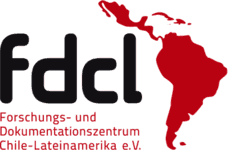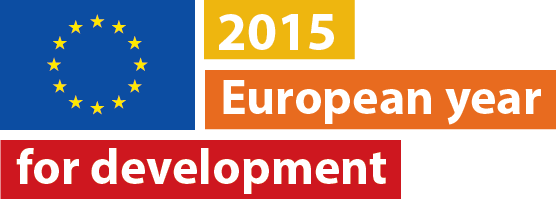Austerity measures led to increased rural poverty and food insecurity in Greece and violated her people’s human right to food. How did this happen and who is responsible?
Download the full report here.
Executive summary
This Report examines the impacts of austerity in Greece on the right to food. It concludes that the Greek State and the Eurozone Member States violated the Greek people’s right to food as a result of the austerity measures required by three Memorandums of Understanding (2010, 2012 and 2015). In other words, the austerity packages imposed on Greece contravened international human rights law.
In August 2018, the European Council celebrated the end of the third Memorandum of Understanding (MOU), praising the Greek’s efforts and European solidarity. Yet, as this Report shows, there is little to celebrate. Not only did austerity measures increase poverty and food insecurity, it further consolidated an agri-food business regime that will perpetuate inequalities in access to and control over food.
The Report examines the impacts of austerity on food producers and consumer/cooperative initiatives as well as social impacts on the Greek population in general. By focusing on the human right to food, the Report highlights the impact of the Greek economic crisis that has touched every aspect of people’s lives. The focus on food producers and rural areas also draws attention to an overlooked aspect of Greece’s crisis as these sectors and regions often lack voice and recognition in national politics and decision-making.
The findings are based on direct interviews and original fieldwork, supplemented by interviews (including with high-level State officials) as well as macro-economic data analysis and literature reviews of key texts.
The findings of the Report are startling.
1. Austerity measures increased rural poverty and food insecurity
• An estimated 38.9 % of rural citizens in Greece in 2017 are at risk of poverty * .
• Rural unemployment soared from 7% in 2008 to 25% in 2013 while rural income per capita dropped by 23.5% during the crisis years (2008–2013).
• Food insecurity across Greece has also increased – with food prices increasing at faster rates than prices in the Eurozone during the crisis, despite the sharp fall in domestic incomes and labour costs. This led to a drop in food expenditure in total terms but an increase in food expenditure as a share of total monthly expenditure from 16.4% in 2008 to 20.7% in 2016.
– The proportion of households that cannot afford a meal with meat, chicken, fish (or vegetarian equivalent) every second day, for example, doubled during the crisis from approximately 7% in 2008 to more than 14% in 2016.
– The share of households with children unable to afford a protein-based meal on a daily basis doubled from 4.7% in 2009 to 8.9% in 2014. EU statistics estimate that 40.5% of children in 2016 faced material and social deprivation.
– Overall the crisis prompted a noticeable change in consumption patterns with the substitution of higher cost food items with more inexpensive foods.
* The EU defines this as someone severely materially deprived, below the poverty line after social transfers, or living in households where adults are employed less than 20% of the time.
2. Austerity measures impacted particularly severely on small-scale food producers and traders
The adverse measures on farmers included:
• Higher taxes and increased costs of production due to the replacement of a separate income tax regime for farmers with a standardised income tax system, higher VAT rates on agricultural inputs including on fertilizer, pesticide, feed and seed, and diesel; and the introduction of a new tax on farmland. Taxes as a proportion of agricultural net value added soared from 4% between 1993 and 2010 to 15.4% in 2016.
• The abolition of the specialised Agricultural Insurance Organisation (OGA) and its merging with a generalised system of social security has led to higher contributions for many farmers.
As well as direct impacts, a number of structural reforms significantly tipped the balance in favour of larger food retailers and private traders to the detriment of small-scale producers. These reforms included:
• Retail trade liberalisation, such as the lifting of restrictions on particular goods sold in supermarkets, flexibilisation of labour laws, and a move towards Sunday trading.
• Wholesale trade liberalisation, specifically the privatisation of the formerly publicly administered and profitable Central Markets and Fishery Organisation, the country’s prime wholesale food operator, responsible for the country’s 2 major food markets and 11 fish markets.
• Privatisations, including the privatisations of the Agricultural Bank of Greece (ATE) and the major dairy cooperative AGNO. The results have been increased costs for farmers less access to rural credit, specialised financial services, and agronomic advice.
3. The austerity measures hit an already weakened rural food sector made vulnerable by long-term trends
Agriculture in Greece remains a significant part of the economy, making up nearly 4% of the country’s GDP (more than double the EU average) and providing 12% of the country’s jobs in 2016, but it has been in a state of decline since the early 1980s. Greece’s entrance into the European Economic Community in 1981 and later the EU – and the Common Agricultural Policy – opened up Greece’s small-scale farmers to greater competition. This led to a number of vulnerabilities in the Greek agri-food system prior to the crisis including:
• A steady fall in domestic agricultural production and an increasing reliance on food imports that led to a negative food trade balance. Between the late 1980s and the beginning of the crisis in 2008, the food trade deficit frequently exceeded 1% of the country’s gross domestic product (GDP) while in the period 2005–2011, imports accounted for nearly 40% of domestic consumption.
• Increasing reliance on food subsidies with subsidies rising as a share of net value added in agriculture from 23% in 1993 to 81% in 2008.
• A growing supermarket sector that intensified monopolistic conditions in relation to producers and consumers alike.
These trends have undermined Greece’s food sovereignty, turning Greece from a net food exporter to a net food importer. Yet rather than remedying these vulnerabilities, the three MOUs (2010, 2012 and 2015) accelerated these trends. Examining the structural requirements of the memorandums suggests a deliberate ideological project of transforming the State and restructuring the Greek economy in favour of certain sectors of capital such as large (trans)national supermarket chains. The crisis provided a means to implement it.
4. The Greek government’s social safety net was insufficient to prevent food insecurity and poverty
The Greek government enacted a number of social programmes seeking to provide a safety net against the fallout from austerity and to address urgent food insecurity concerns. These included the passing of a humanitarian assistance law that provided food, rent and electricity subsidies for low-income individuals and families. This was later replaced by a Social Solidarity Scheme which provides low-income households with a monthly allowance.
While addressing the most basic needs, the Scheme’s support has been limited in scope, providing only €30 to €200 per household per month, with an additional €100 for every adult and €50 euros per child. The strict eligibility criteria limits support to the most severe cases of material deprivation, while the means testing requirements exclude many who would be entitled due to its restrictive and bureaucratic stipulations. Coverage in rural areas has also been limited.
As a result, private foundations, charities, NGOs, and the Greek Church have had to fill some of these gaps – offering among others free school meals, food banks and soup kitchens, and ‘social grocery’ stores that provide food, clothing, cleaning materials, and other basic goods for low- income individuals and families.
While some of these programmes receive support from local municipalities, and in the case of the school meals programme also central government backing, they are little more than sticking plasters. Human rights-based responses, such as supporting jobs and just wages, that would deal with the root causes of hunger and food insecurity need to be much more centrally foregrounded.
5. Community-led popular responses provide real solutions and point to the emergence of a new food politics
In the face of Troika-enforced government policies undermining food sovereignty – and a failure to adequately ameliorate its impacts – a range of grassroots community initiatives have emerged to help secure people’s access to food.
These reflect different political tendencies, vary in terms of infrastructure and engage differently with States and markets. They include solidarity kitchens, food cooperatives, ‘No intermediaries’ markets, food self-sufficiency collectives and networks, Community-supported agriculture (CSA) schemes, as well as a range of other agricultural cooperatives, alternative farm models, and producers’ ventures.
The call for a ‘solidarity economy’ has become a key framework within which many grassroots responses have articulated their demands and aspirations. This Social Solidarity Economy (SSE) has grown massively during the years of the crisis: in 2013, 372 social enterprises were registered while in the years 2014, 2015 and 2016 these rose to 585, 714 and 907 respectively.
In building up such counter-power from below based on innovative practices, social experimentation and people-controlled infrastructures, this movement is paving the way not only for a popular resistance to austerity, but also a new, transformative, just food system. This extends beyond demands for affordable food prices and farmer protection towards genuinely challenging the structural power of the corporate agribusiness sector and advancing popular alternatives.
6. The right to food has been violated in Greece
The right to adequate food is strongly enshrined in international human rights law and its normative content notes several elements (availability, accessibility, adequacy, sustainability) that need to be safeguarded. The right to adequate food also correlates closely with other economic, social and cultural rights (ESCR), meaning that the violation of one right often leads to the violation of other rights. The right to health, life, water and adequate housing are underlying determinants of the right to food.
Several austerity measures – including changes to agricultural taxes and social security regimes and the drive towards privatization and trade liberalization – contributed directly to undermining the right to food in Greece. Other measures such as minimum wage reductions and pension cuts also affected this fundamental human right and contravened other economic, social and cultural rights, such as the right to work, housing and health.
States have the obligation to realize human rights. This obligation includes the progressive realization of socio-economic rights with the maximum available resources, which prima facie prohibits retrogressive* measures that would limit or reduce existing levels of enjoyment of enshrined rights. Retrogressive measures can only be taken under very limited circumstances and based on key conditions – such as careful monitoring and evaluation, consideration of all rights, ensuring no disproportionate impact on the most vulnerable – none of which was applied by the Greek government. The wide array of retrogressive measures taken, combined with the increasing cost of living, are sufficient proof that the right to food was violated in Greece.
* Retrogressive measures means any measure that implies a step back in the level of human rights protection due to the intentional decision by a State.
7. Accountability for violations of the right to food rests both with the Greek government and the Eurozone Member States, with the latter arguably taking a greater share of the responsibility
When a human right is violated, it means there has been a breach in the obligation to respect, protect and fulfill this human right. Many actors were involved in the negotiations leading to the three MoUs. Human rights obligations exist territorially and, under certain circumstances, extraterritorially.
As a result of the austerity measures, Greece has violated the human right to food of people living in Greece. Yet, Eurozone Member States, as direct lenders are also responsible as they signed the MoUs and likely pressured the Greek government to do so. Eurozone Member States – as States Parties to the International Covenant on Economic, Social, and Cultural Rights and other international human rights instruments – have therefore breached their extraterritorial obligations to respect the human right to food in Greece. Not only should Eurozone States have refrained from requiring measures that affected the right to food, they should have also conducted human rights impacts assessments of the Memorandums. These HRIAs are required prior to, during, and after the passing of MoUs, but were never done.
Furthermore, all European States have failed to comply with their human rights obligations when acting and taking decisions in Intergovernmental Organisations and International Financial Institutions, such as in the International Monetary Fund. As part of the UN system, the latter is obliged to comply with the UN Charter which includes a commitment to the progressive realization of human rights. It certainly should not take any action that would constitute a human rights violation.
Troika members claim that the sole responsibility for the impacts of the MoUs lies with the Greek State. This argument is false because they, with Greece, were joint signatures of the three MoUs. Therefore, the responsibility for violations of the right to food is a shared one too. Indeed it can be argued that the responsibility of the Eurozone Member States is much bigger, given the evidence of direct interference or even coercion by the Member States of the Troika on Greece to sign the MoUs.
The focus of this Report is on Greece, but its findings are relevant internationally. Greece is not an exception. Many other countries, in and outside of Europe, find themselves in similar situations, forced to implement austerity-driven, technocratic policies which lead to violations of economic, social and cultural rights including the fundamental right to food. Greece’s experience also shows that the violations of these fundamental rights are not only issues of the global South. They are happening in the global ‘North’. Hunger, food insecurity, poverty and material deprivation are European issues. Human rights are universal, which means all governments have obligations to fulfill them. It is time now for the EU to act in accordance with these obligations and put human rights above the needs of financial markets.
Download the full report here.














 This campaign is financially supported by the European Commission. The views expressed herein are not of the EC.
This campaign is financially supported by the European Commission. The views expressed herein are not of the EC.